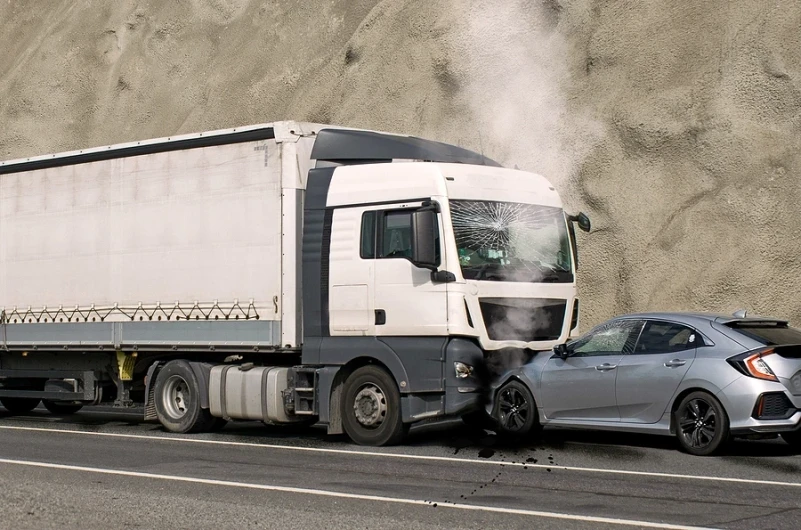Understanding Your Rights After a Truck Accident in Fort Myers

Truck accidents can cause serious injuries, extensive property damage, and lasting emotional trauma. Large commercial vehicles operate under strict regulations, and collisions involving trucks often differ from typical car accidents. Navigating a truck accident claim in Florida requires understanding your legal rights, the responsibilities of various parties, and the steps necessary to protect your interests. Prompt action and informed decision-making are essential for obtaining fair compensation.
Why Truck Accidents Are Different from Car Collisions
Truck accidents often result in more severe injuries due to the size and weight of commercial vehicles. Even a low-speed collision can cause significant harm. Common injuries include broken bones, spinal cord injuries, head trauma, and internal injuries. The aftermath of a truck accident may also involve multiple parties, including the truck driver, the trucking company, insurers, and possibly manufacturers of defective equipment. This complexity makes legal guidance critical.
Understanding Liability in Truck Accidents
Determining liability in truck accidents is more complex than in typical car crashes. Several parties can be held responsible depending on the circumstances:
-
Truck driver – Negligence, fatigue, distraction, or impairment can make the driver liable.
-
Trucking company – Employers may be responsible if they failed to maintain the vehicle, enforce safety regulations, or overwork drivers.
-
Vehicle manufacturers – Defective brakes, tires, or other components can result in product liability claims.
-
Third-party contractors – If a third-party company contributed to unsafe conditions or actions, they may share responsibility.
Identifying all liable parties is essential for ensuring complete compensation.
Immediate Steps to Take After a Truck Accident
Taking the right steps immediately after a truck accident can protect both your health and your legal rights:
-
Seek medical attention – Some injuries, like internal bleeding or traumatic brain injuries, may not be immediately apparent. Prompt evaluation ensures proper treatment and documentation.
-
Call law enforcement – Police reports provide an official record and can establish critical details about the accident.
-
Document the scene – Take photos of vehicles, road conditions, skid marks, traffic signals, and any visible injuries.
-
Collect witness information – Statements from bystanders can corroborate your account of the accident.
-
Avoid discussing fault – Statements to other drivers or insurance representatives can be used against you. Limit communication until legal guidance is obtained.
Careful documentation and timely reporting are crucial for building a strong claim.
The Role of Insurance Companies
Insurance companies are a significant part of truck accident claims. Both the driver’s personal insurance and the trucking company’s commercial insurance may be involved. Insurance adjusters often investigate claims quickly and may attempt to minimize payouts. Consulting a personal injury lawyer before speaking to insurers ensures that your rights are protected and that you do not inadvertently reduce potential compensation.
Types of Compensation Available
Truck accident victims may be entitled to several forms of compensation, depending on the severity of the accident and the parties involved:
-
Medical expenses – Hospital bills, surgeries, rehabilitation, and ongoing treatment costs.
-
Lost wages – Compensation for missed work due to injury.
-
Pain and suffering – Recognition for physical and emotional distress.
-
Property damage – Repair or replacement of vehicles and personal property.
-
Long-term care – Costs for ongoing medical needs or modifications for disability.
A knowledgeable attorney can assess the full extent of damages and ensure that all potential avenues for compensation are pursued.
The Importance of Evidence in Truck Accident Claims
Strong evidence is vital for proving liability and supporting a claim. Critical evidence may include:
-
Vehicle inspection reports and maintenance records
-
Driver logs and electronic logging device (ELD) records
-
Surveillance or dashcam footage
-
Witness statements and photographs
-
Medical records and expert testimony
Collecting and preserving this information early can make a substantial difference in the outcome of a claim.
Statutes of Limitation and Legal Timelines
Florida has specific statutes of limitation for personal injury claims. Generally, an injured party has four years from the date of the accident to file a personal injury lawsuit. However, claims against government entities or for certain types of damages may have shorter deadlines. Acting promptly ensures that legal rights are preserved and evidence is not lost over time.
Working With a Personal Injury Lawyer
Navigating a truck accident claim involves complex legal and procedural issues. An experienced personal injury lawyer in Fort Myers can help:
-
Investigate the accident thoroughly and identify liable parties
-
Gather medical and technical evidence
-
Negotiate with insurance companies for fair settlements
-
Pursue litigation if necessary to secure full compensation
-
Provide guidance throughout the claims process
Having professional legal support increases the likelihood of obtaining fair compensation while reducing stress during recovery.
Preventive Measures for Truck Accident Situations
While not all accidents can be prevented, certain practices can reduce risk:
-
Maintain awareness and safe distance from commercial trucks on the road
-
Avoid blind spots and erratic movements around large vehicles
-
Use seat belts and proper safety restraints
-
Document near misses or unsafe truck behavior for potential reporting
Being proactive about safety enhances protection on the road and may provide evidence if a collision occurs.
Conclusion
Truck accidents in Fort Myers are often severe and complex, involving multiple parties and serious injuries. Understanding liability, documenting incidents, seeking prompt medical care, and working with an experienced personal injury lawyer are essential steps for protecting your rights. Legal guidance ensures that victims can pursue fair compensation for medical costs, lost wages, pain and suffering, and long-term care. Addressing both immediate needs and legal considerations after a truck accident maximizes recovery and supports a safer return to daily life.

 Call Us Today - It's Free
Call Us Today - It's Free